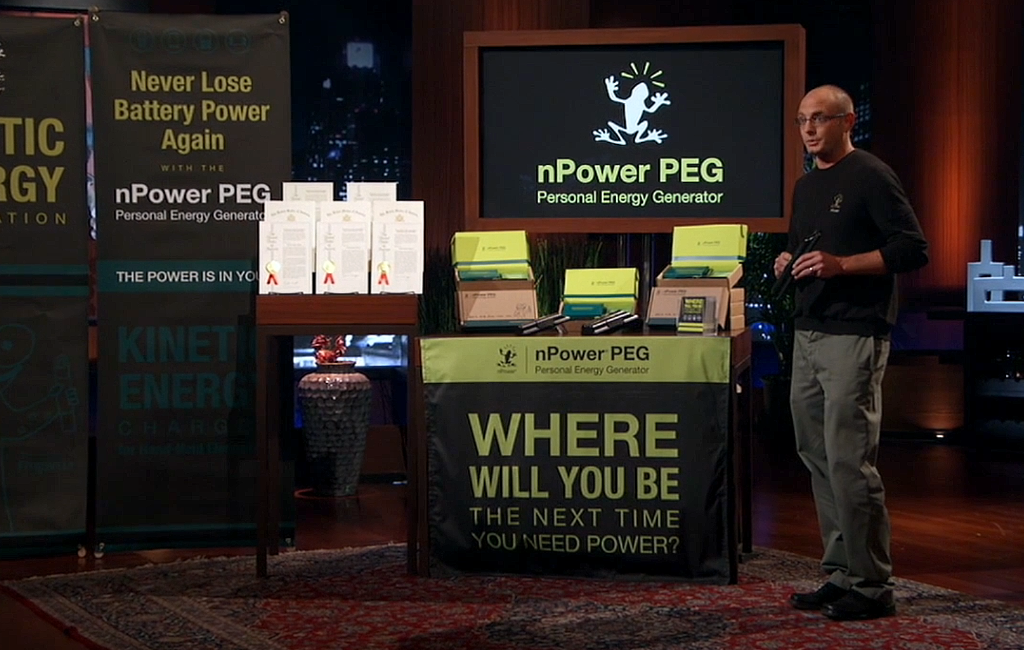nPower PEG – Human-powered Charger

NO DEAL
EPISODE SUMMARY
🕓 Air Date: April 26, 2013
Asking For:
$2,000,000 for 22%
Investor:
No Deal
Deal:
No Deal
PRODUCT SUMMARY
The nPower PEG is the world's first human-powered charger for mobile electronic devices, harnessing kinetic energy from walking motion to recharge devices on the go.
WATCH HERE
IN A RUSH?
Click these to jump to the section you want to read.
Background Story
Tremont Electric, led by Aaron Lemieux, introduced the nPower PEG as a solution to the perennial problem of smartphone batteries dying at inconvenient times. Aaron Lemieux, the founder, recognized the need for a portable power solution and developed the concept of harvesting energy from human motion.

The company aimed to revolutionize energy generation and distribution, starting with the nPower PEG. With an extensive patent portfolio and a vision for scalable applications beyond personal electronics, Tremont Electric sought to attract investors to fuel its growth and expand its clean energy technology.
The Product
The nPower PEG utilizes kinetic energy harvesting technology to convert motion into electricity, storing it in an internal battery. Users simply place the device in their bag or backpack while walking, and it charges their electronic devices when needed.
Priced at $199, the nPower PEG has sold 1,300 units through the company’s web store. Despite costing $110 to produce, the initial high price was justified as a proof of concept to establish market demand.
Tremont Electric plans to leverage its technology beyond personal electronics, envisioning applications in mass-wave-energy power generation, such as harnessing energy from ocean waves.

How It Went
The company’s position before Shark Tank
Tremont Electric has demonstrated market demand for its product, selling 1,300 units of the nPower PEG. While the production cost is high, the company aimed to prove its concept before scaling production. With a vision for clean energy solutions beyond personal electronics, Tremont Electric has positioned itself to explore applications in mass-wave-energy power generation. Despite the lack of a deal on Shark Tank, the company remains committed to its mission of creating scalable, clean technology solutions.

The Negotiations:
Despite demonstrating market demand and a vision for scalable applications, Tremont Electric failed to secure a deal on Shark Tank. The Sharks expressed concerns about the scalability and profitability of the business, with Kevin O’Leary notably criticizing the $2 million investment ask.

While some Sharks admired the technology and its potential impact, they ultimately decided not to invest due to concerns about scalability and the high investment ask. Aaron Lemieux remained optimistic about the company’s future, expressing confidence in its clean technology trajectory.








